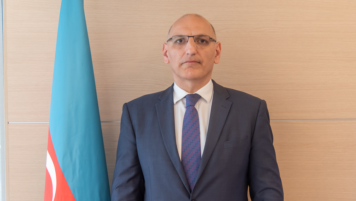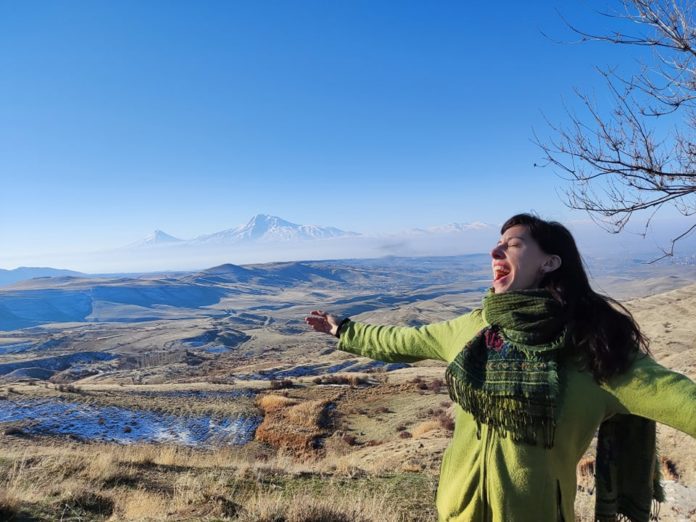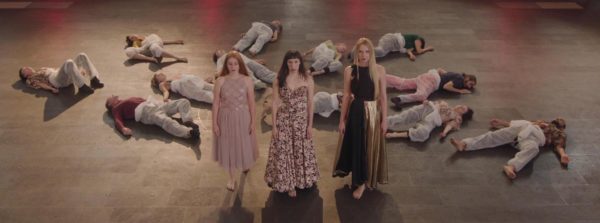YEREVAN / BERLIN — Helen Ispirian is a singer, actress and filmmaker. Born in Ulm (Baden-Württemberg, Germany), she studied singing, drama and dance in the University of Music and Performing Arts Vienna, as well as music pedagogy at Berlin University of the Arts. She worked in theaters in Germany (Karlsruhe, Stuttgart, Schweinfurt, Berlin) and took part in several projects abroad (Vienna, German Theatre Almaty, Meyerhold-Centre Moscow). It was also in Moscow, where Helen founded her chanson-folk band GASTARBAiTERKA – Helen & Guys. They have performed in clubs and festivals in Ural and Siberia as well as at the Moscow International Film Festival.
Helen also has acted in some films and worked briefly at a company making documentaries, before she directed two films.
Currently, Helen lives again in Berlin, where she performs with her female ensemble OrgaVoce (Soprano, Mezzosoprano, Organ) early and contemporary music and sings in professional choirs. She also is working as a voice teacher and is conducting two amateur choirs.
Helen, first we met in Yerevan in 2001. At that time, you were Kurkjian, but for long time you are Ispirian, which is not your husband’s surname. Why then change your last name?
In 2008, when I learned that my father’s name by birth was not Manuel Kurkjian, but Rafael Ispirian and that his birthplace Alexandrette, as written in his passport, was not the place where he was really born, I became so curious that I started to explore my father’s family story and at the same time the tragic happenings in world history, which influenced that story. During that time, I decided to change my name back to the name Ispirian — first only as an artist, but in 2019 I have followed formally the procedure to change it in my passport.
Being half Armenian, half German, how would you describe your connections with your father’s country?










